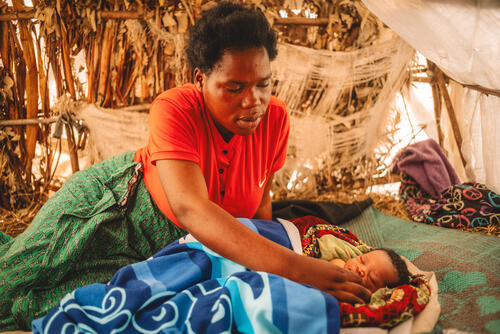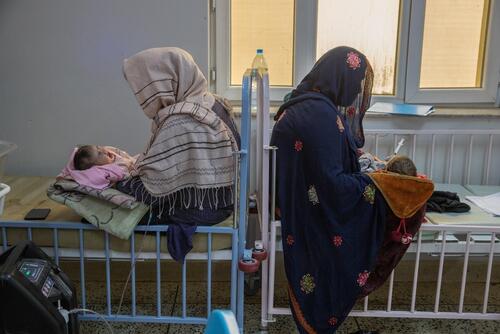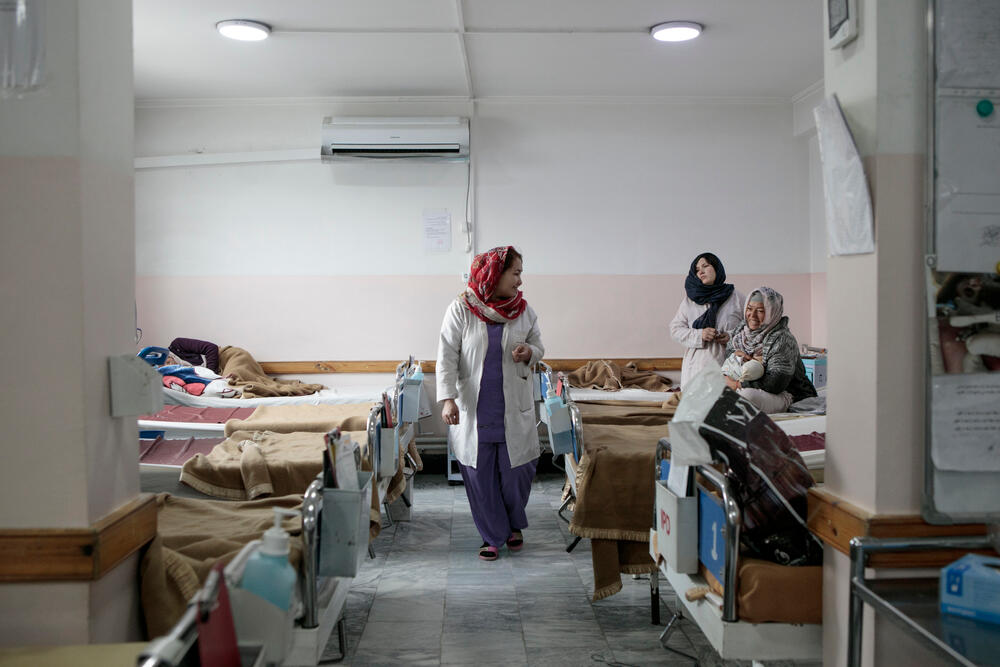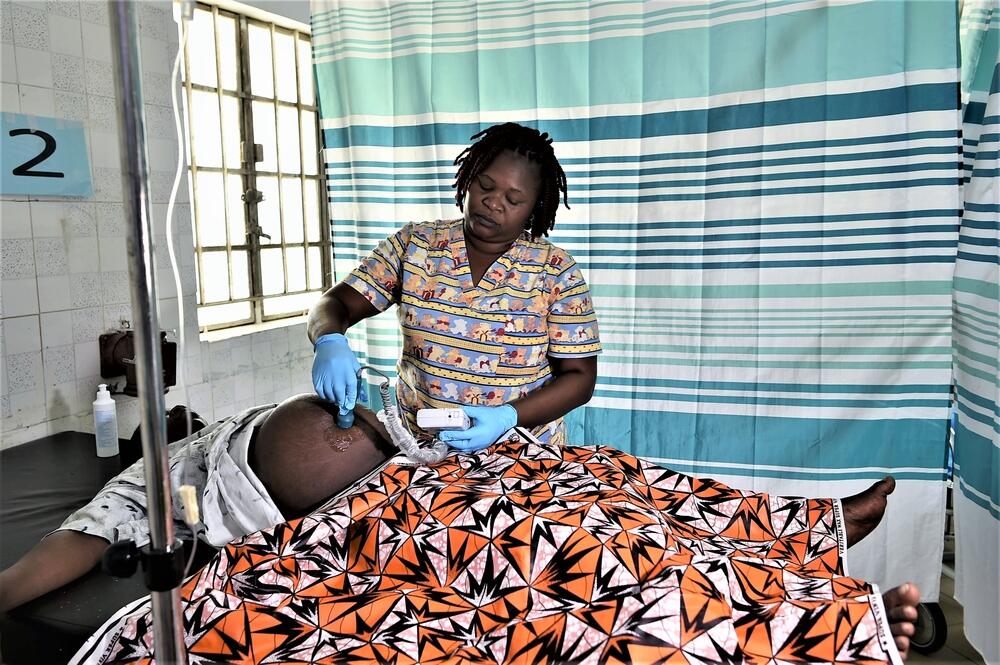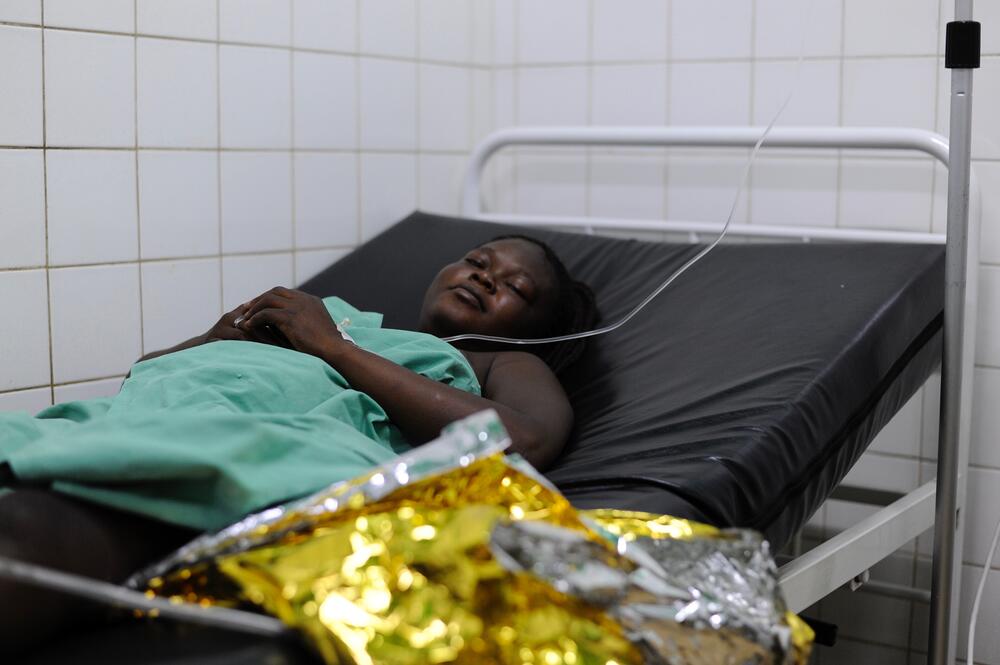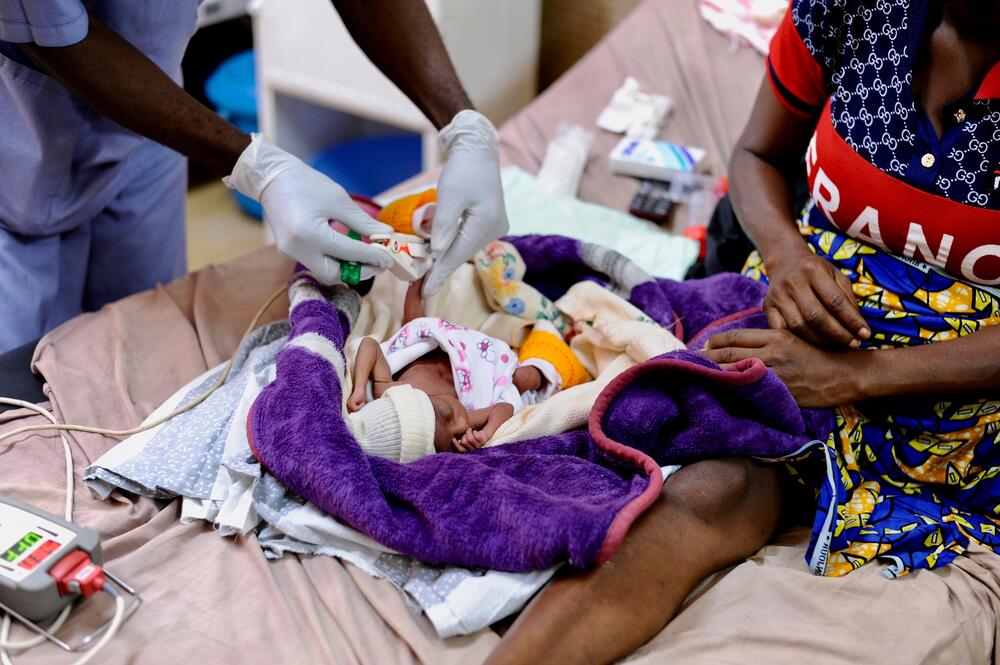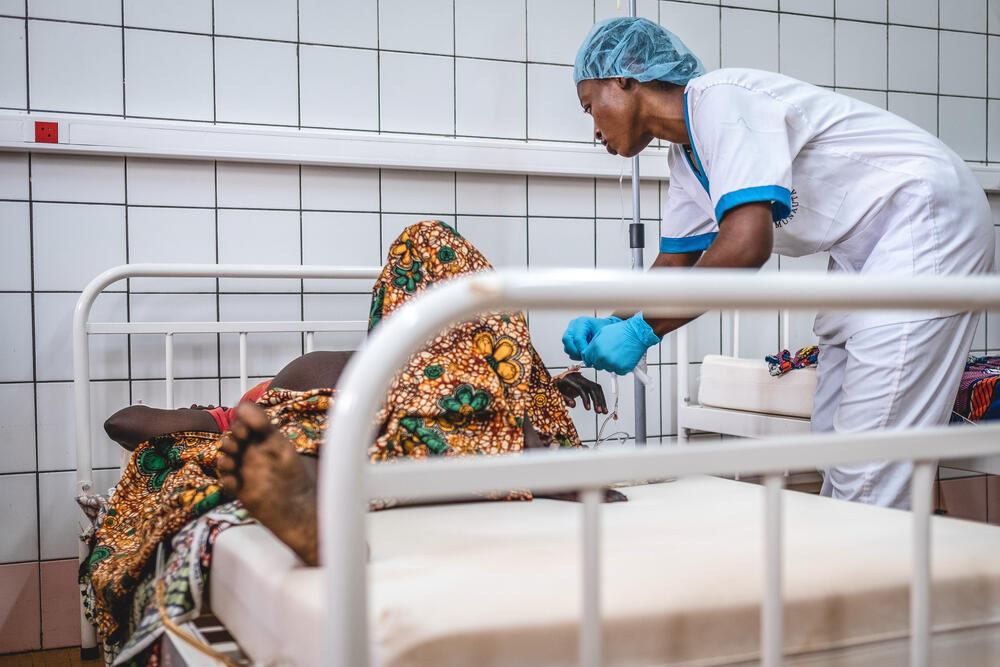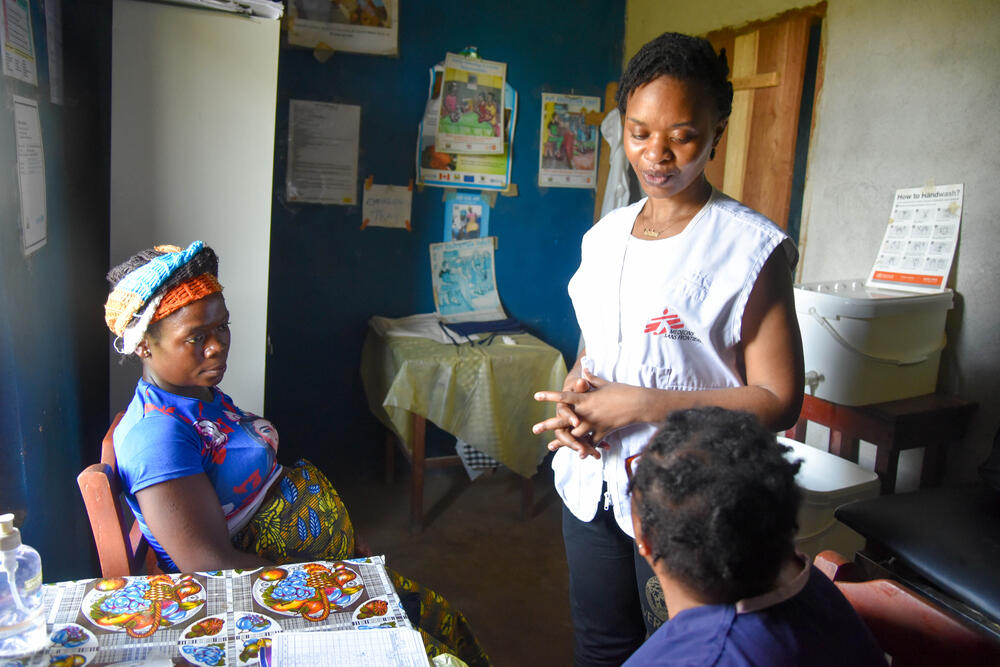Maternal Health
Many women across the world give birth without medical assistance.
This significantly increases the risk of complications or death. Ninety nine percent of these deaths are in developing countries. The majority are preventable with appropriate care.
Our healthcare teams work together with pregnant women to provide delivery services, emergency obstetric care and post-delivery consultations. We work with midwives and traditional birth attendants to establish programmes so complicated births can be identified quickly to help prevent maternal deaths.
"Obstetrics in Sierra Leone, as I’m sure is the case in many developing countries, is a far removal from the world I have trained and worked in,” says Benjamin Black, an MSF obstetrician working in Sierra Leone, in his MSF blog.
“There is little in the way of antenatal care, nearly no-one has had an ultrasound scan, there’s no proper foetal monitoring and presentations are often complicated and late. [..] The aim of care here is ultimately to keep mothers alive and avoid putting a scar on their uterus (caesarean section), as you don’t know where they will deliver next time."
What causes maternal death?
The most common complications causing maternal death, accounting for nearly 75 percent of all maternal deaths, are:
- postpartum haemorrhage
- infection
- eclampsia
- complications from delivery
- unsafe abortion
Postpartum haemorrhage
Excessive bleeding, or postpartum haemorrhage, can happen following a complicated delivery. Often it is caused by uterine atony, the inability of the uterus to contract. Normally after delivery the contraction of the uterus should stop the bleeding that occurs after separation of the placenta. Due to reasons like an incomplete separation of the placenta, uterine atony occurs and bleeding continues. A woman can lose half a litre of blood in one minute and bleed to death rapidly unless action is taken quickly to stop the bleeding.
Prevention of postpartum haemorrhage is necessitated by identification of risk factors in the third stage of labour. MSF trains community health workers in countries like Sudan to identify warning signs. If the complication is identified, it can be administered as a means of prophylaxis. If severe bleeding does occur, the uterus is massaged to empty it of any trapped blood clots, and IV fluids are administered.
317,300
BIRTHS ASSISTED BY MSF TEAMS IN 2021
94%
OF ALL MATERNAL DEATHS OCCUR IN LOW AND LOWER MIDDLE-INCOME COUNTRIES
810
WOMEN DIED EVERY DAY FROM PREGNANCY AND BIRTH COMPLICATIONS IN 2017
Infections
Reproductive tract infections (RTIs) can be contracted during pregnancy or in unhygienic conditions during delivery. RTIs can cause inflammation of the uterus, or pelvic inflammatory disease, which can eventually cause maternal death. RTI symptoms include fever, shivering and abdominal pain.
Access to clean water and hygienic conditions during delivery, such as clean hands and a clean delivery surface like a plastic cover, are vital to preventing an RTI.
MSF has opened maternity hospitals in countries such as Afghanistan to allow for delivery in hygienic conditions.
Pre-eclampsia
Pre-eclampsia is a disorder which can occur during pregnancy, characterised by high blood pressure and protein in the urine. Without help, pre-eclampsia can lead to eclampsia – one of the main causes of maternal deaths worldwide.
Eclampsia can lead to a woman presenting with life-threatening complications, such as convulsions, as well as swelling, sudden weight gain, headaches and changes in vision. If eclampsia develops, the mother may have seizures during delivery with life-threatening consequences. Skilled people and essential drugs are vital at the birth. Intervention varies widely and is highly dependent on the availability of access to obstetric care.
MSF provides emergency obstetric care in many resource poor settings, such as Syria, to deliver drugs such as anti-hypertensives or to facilitate a caesarean section if needed.
Complications from delivery
Obstructed labour can occur if the baby’s head is too large or the position is abnormal, blocking passage through the birth canal. When a mother is malnourished or is young and therefore has an underdeveloped pelvis, the birth canal itself is often not wide enough to accommodate the head of the baby.
An obstructed labour can then cause a prolonged labour, defined as one lasting for longer than 24 hours. Labour of this duration can cause complications such as postpartum haemorrhage.
Skilled staff are also essential in the management of a complicated delivery to quickly identify signs that intervention is needed. IV fluids and antibiotics may sometimes be necessary in prolonged labour.
It is also vital to identify when a caesarean section is necessary. MSF surgeons work in places like the Central African Republic and Pakistan to provide skilled staff for performing caesareans.
Termination of Pregnancy
Unsafe abortions are a major problem in the developing world. Performed by unqualified personnel, and/or in unhygienic environments, unsafe abortions can cause life-threatening complications in girls and women. These can include severe bleeding, infections and peritonitis (a swelling of the stomach).
These complications are known to cause injury and sterility and even death: they are among the most common causes of maternal mortality worldwide. But unsafe abortions are one of the few emergencies leading to maternal death that can be anticipated and prevented.
The World Health Organisation (WHO) estimates around 22 million unsafe abortions take place each year. Only around five million of these women are admitted to hospital.
Since 2004, Médecins Sans Frontières (MSF) has provided access to voluntary safe abortions for women around the world, with the objective of reducing maternal mortality and suffering.
In 2014 and 2015, MSF treated over 20,000 women with abortion complications.
The vast majority of unsafe abortions take place in developing countries. Ninety-seven percent of abortions in Africa are unsafe, as are 95 percent in Latin America. Only six percent of abortions are unsafe in developed countries. In many societies, there are strong social standards and prejudices linked to abortion, including a certain degree of reluctance to practice, or even talk about it.
We take these social considerations into account along with our professional responsibility to our patients. In countries with particularly strict rules on abortion, we work with international volunteers who assume the responsibility for carrying out procedures.
Abortions are completely illegal in only six countries around the world, none of which are in Africa or Asia: Chile, Dominican Republic, El Salvador, Nicaragua, Malta and Vatican City. Ninety-seven percent of countries allow abortions when it is necessary to save the mother’s life.
Sixty percent extend this to when it is necessary for health reasons (including mental). Furthermore, over 50 percent of countries allow abortions for pregnancies caused by rape. However, it is not uncommon for local attitudes and beliefs to generate legal action.
We balance local attitudes and abortion law by focusing on the respect and safety of the women involved. We also endeavour to communicate clearly about the issue in areas where we work, explaining our medical mission, and our arguments and justifications for providing this type of care to women who request it.
The termination of pregnancy procedures we provide are 100 percent voluntary and we provide confidentiality to all our patients. To women who request abortion, it is vital that we communicate clearly about the issue, explaining our medical mission, and our justifications for providing this type of care.
Maternal Health: News and stories
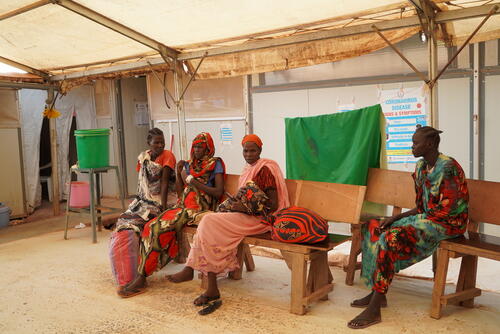
A 90-hour triplet delivery in Bentiu, South Sudan
